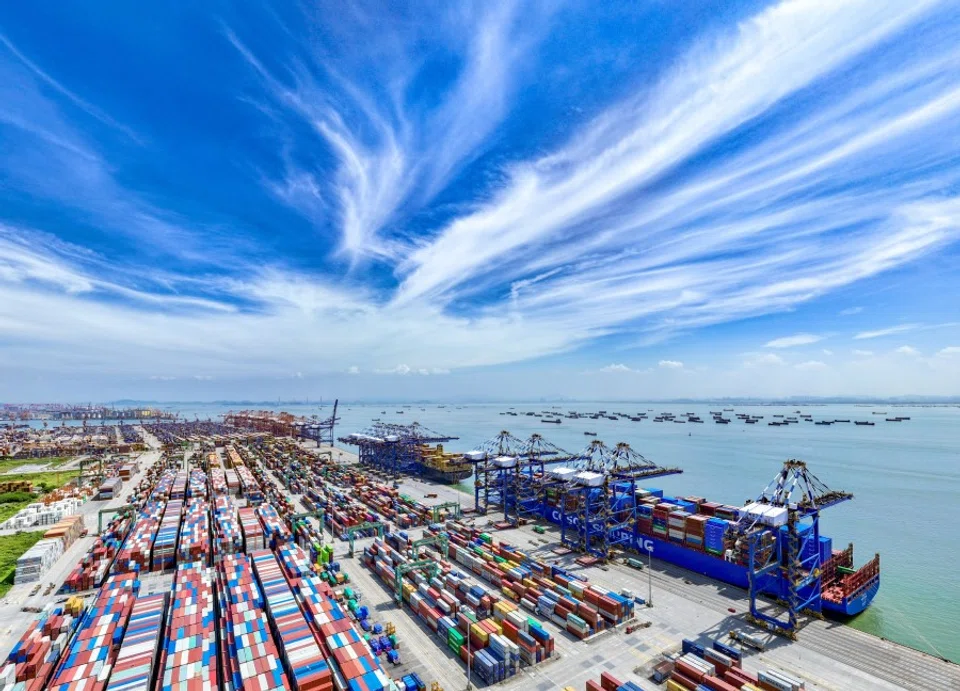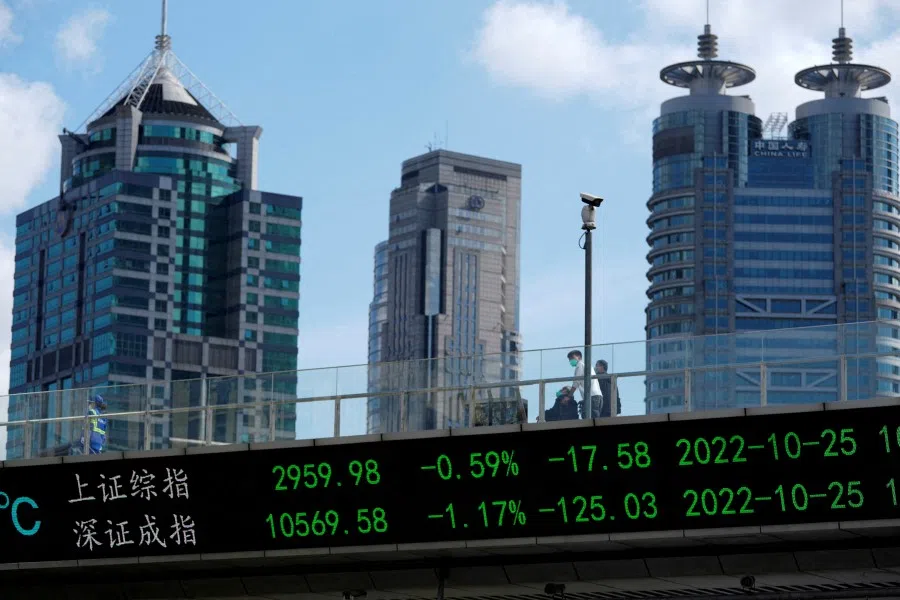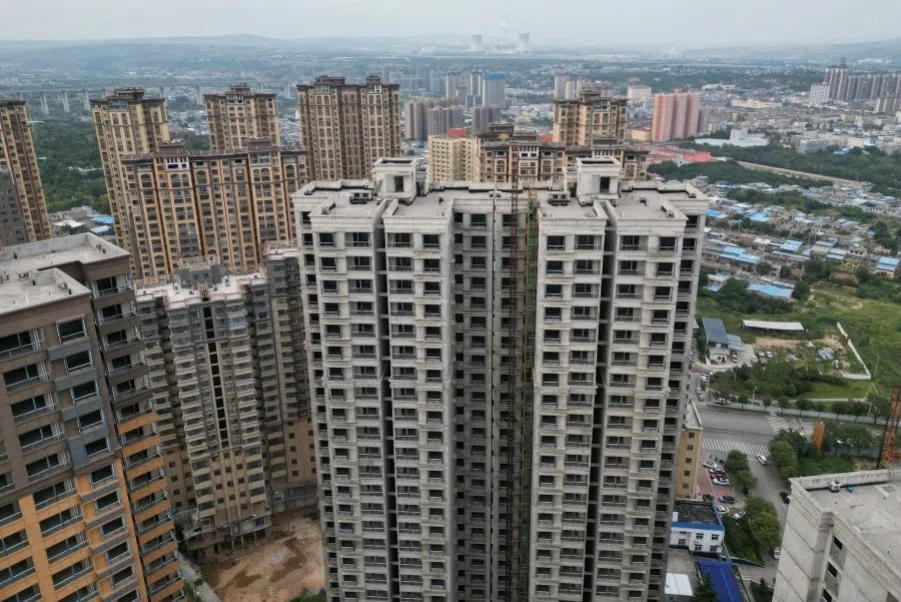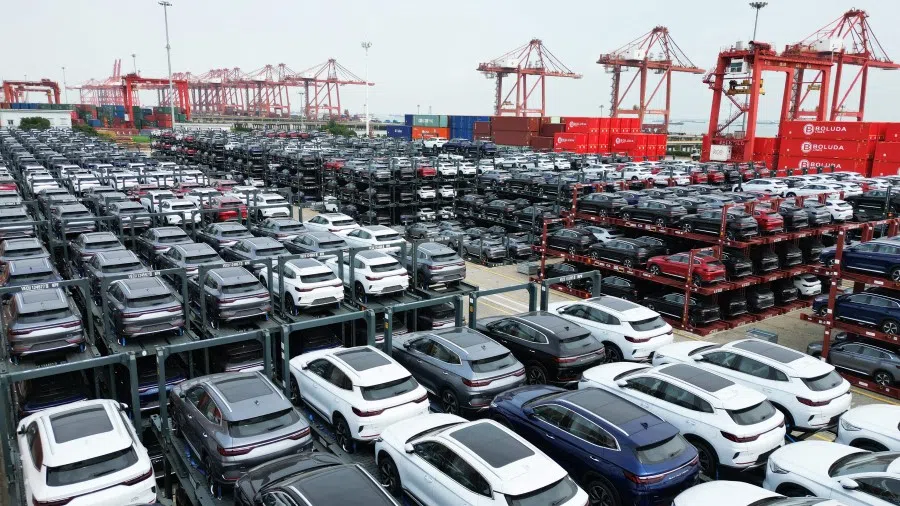Will the BRI's future be impacted by the slowing Chinese economy?
Japanese academic Toshiya Tsugami notes that while China's economy is likely to fall into medium- to long-term stagnation, its outward investments and financing through the Belt and Road Initiative may not be immediately affected. However, other factors may have a ripple effect on China's ability to maintain the momentum of the BRI.

Dark clouds are gathering over the Chinese economy. A real estate recession, which started with the tightening regulations for real estate loans in 2020, has persisted for more than two years, and it is growing increasingly serious.
Compared to two years ago, housing statistics for July showed sales down by 45.8% and new construction work down by 57.6%, which is dismal. According to government statistics, "average home prices nationally have not fallen", but could it be a case of "having an asking price but no market for it (有价无市)"?
With the public becoming increasingly anxious about the future and careful about spending, consumption has not recovered as much as expected following the end of the zero-Covid policy. In particular, households that feel the asset value of their home has gone down are trying to reduce their repayment burden, reminiscent of the "balance sheet recession" in Japan 30 years ago.
Local government finances have also suffered a sharp decline in revenue from land sales, their financial difficulties becoming increasingly serious. According to estimates released by the International Monetary Fund (IMF) in February, the sum of formal local government bonds and hidden local debt, including bank borrowing and corporate bond issuance by local government financing vehicles (LGFVs), had reached 106 trillion RMB as of the end of 2022. At an average interest rate of 5%, the interest burden is 5 trillion RMB annually, equivalent to 4% of GDP. This alone amounts to 60-70% of the total revenue of value-added tax, so the financial difficulties come as no surprise.
Worsening balance sheet and an unpoppable bubble
By the looks of it, this seems to be due to a chain reaction of the real estate recession, but the structural problems facing the Chinese economy today are not limited to real estate problems. Years of over-investment and debt have worsened China's overall balance sheet.
According to statistics from the Bank for International Settlements (BIS), China's total debt/GDP ratio jumped from 178% at the beginning of 2010 to 297% at the end of last year, characteristic of a bubble forming. This is because investing in ineffective businesses has weakened the ability of investments to generate growth, as represented by the marginal capital coefficient - the investment required to generate one unit of economic growth was 2.8 units in 2007, but in 2019 it was 7.2 units, while the weighted average for 2020-2021 worsened to 15.1 units.
Companies that cannot repay their debts do not easily go bankrupt because the government supports them behind the scenes to pay interest or refinance the principal...

Normally, in any country, the debt/GDP ratio will soon go down even if it increases sharply for a time, because when the bubble bursts and asset prices plummet, overvalued assets and non-performing liabilities that cannot be repaid are written off. This can also be seen as the market mechanism cleaning up both sides of the balance sheet.
In China, however, the government intervenes to prevent real estate prices from falling sharply. Companies that cannot repay their debts do not easily go bankrupt because the government supports them behind the scenes to pay interest or refinance the principal in what are known as "hidden government guarantee" practices.
'Toxins' and their ills
At first glance, preventing the bubble from bursting might look like a good thing. Yet, if we draw an analogy with human health, it is similar to accidentally eating spoiled food - an inefficient asset - without throwing up or expelling it. "Toxins" are not excreted and accumulate in the body, causing health to decline in a different way than the economic bubble bursting.
It is easy to understand the "toxins" brought about by the real estate bubble. As a result of being forced to take out unreasonably high mortgages, repayments including interest rates put pressure on household budgets and reduce consumption.
The "toxins" caused by corporate over-investment are when companies invest with loans, which do not yield a return and are subject to ever-increasing interest payments, like paying a high salary to an employee who does a poor job.
The interest payments that the Chinese government pays under the "hidden government guarantee" to maintain zombie companies that find it difficult to sustain themselves on their own, are equivalent to "wasted high salaries" here.
...unnecessary interest payments amount to about 3.8 trillion RMB annually, and that wealth corresponding to 3% of GDP is transferred to financial institutions and their clients, who are high-net-worth individuals with large assets...

As a result of Chinese over-investment in the past decade, "wasted high salaries" have reached alarming proportions. When this writer made rough calculations based on assumptions such as (1) housing prices are twice the normal level, (2) 15% of financial institutions' loans to companies are severe latent non-performing loans (according to IMF estimates in 2016), and (3) infrastructure investments by local governments have an asset value only half of the book value, the results showed that unnecessary interest payments amount to about 3.8 trillion RMB annually, and that wealth corresponding to 3% of GDP is transferred to financial institutions and their clients, who are high-net-worth individuals with large assets; this is equivalent to 60-70% of the total annual revenue from value-added tax.
The Chinese economy carries a burden of "unnecessarily high salaries" as the price of preventing the bubble from bursting reduces economic efficiency and widens the rich-poor gap. If this is left unchecked, a "middle income trap" cannot be avoided.
What China can do
China must clean up the garbage that it has been avoiding so far, meaning that it must reduce non-performing assets and loans. Just like managing the collapse of the bubble economy, this will be a painful process with many years of low growth, but it is something that cannot be avoided in order to restore the true health of the Chinese economy.
...if it does not take action to address the deterioration of its economy, the situation might end up undermining social stability, leading to situations such as mass protests and runs on small and medium-sized financial institutions.
In the short term, the pressing issues are supporting the economy and reforming local government finances, which are now in crisis. If the Chinese government has sufficient resolve to conclude that "continuous zero/negative growth is necessary to ensure fiscal soundness", that is fine, but if it does not take action to address the deterioration of its economy, the situation might end up undermining social stability, leading to situations such as mass protests and runs on small and medium-sized financial institutions. The cost of taking measures once the dangers have already become apparent will be much higher.

Local government finances are also in crisis due to the burden of longstanding debt. The central government is asking financial institutions to extend the maturity of, or reduce interest rates on, local government debt, but this is like spreading the garbage in the balance sheets of local government finances thinly and widely to the balance sheets of financial institutions, and does not address the root of the problem. Such avoidance of drastic measures may lead to unexpected systemic risks.
What is baffling is that while the central government must step up and bear the onus of addressing any of these issues, there are no signs of that at present.
The future of the BRI
In summary, the Chinese economy faces bleak prospects. Although the risk of a catastrophe in the form of a violent bursting of the bubble remains low, China is highly likely to fall into medium- to long-term stagnation.
If so, what will happen to the economic cooperation with developing countries, such as the Belt and Road Initiative (BRI) that China has been driving?
What may have a profound impact in the medium to long term is that the "Chinese-style development model" that has fascinated the third world so far will lose its lustre...

But what affects overseas investments and lending is not growth rate, but trade balance. Recently, there has been a slight decline of exports from China and foreign investments into China, but the trade balance in the first half of 2023 was a surplus of 409 billion RMB, with incoming foreign investments also reaching about 100 billion RMB.
Given the lack of domestic investment opportunities and China's strong interest in investing in overseas resource development as a way to strengthen its supply chains, China may continue to actively invest and lend overseas.
However, that also comes with challenges. Domestically, there is a risk of growing criticism and dissatisfaction, with the argument that funds should be invested in domestic economic stimulus measures and eliminating the rich-poor gap rather than in overseas investment and loans.
Furthermore, even among the countries receiving investment and loans, if China concentrates on resource development and so on, there is the risk that people will start suspecting that "China is only pursuing its own interests".
What may have a profound impact in the medium to long term is that the "Chinese-style development model" that has fascinated the third world so far will lose its lustre when it becomes apparent that China's rapid economic growth is not actually sustainable, or that its repressive political system is causing numerous problems domestically.





